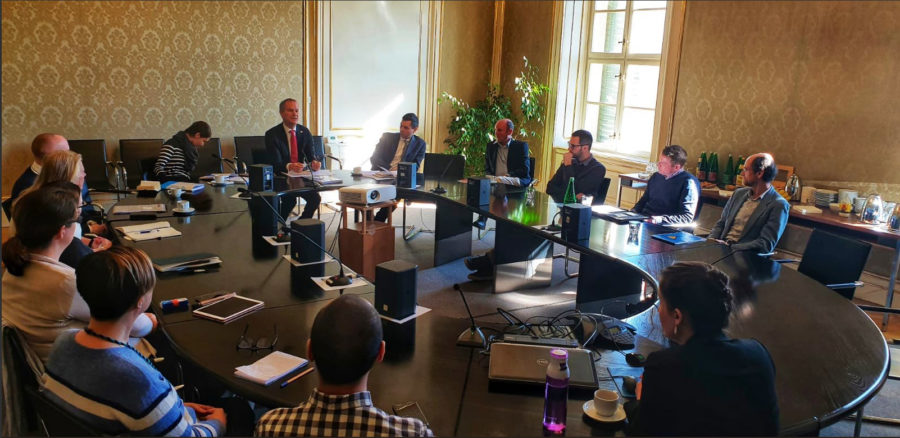Could moves to “normalise” larger clothes sizes have a link to health risks such as cancer? And why should I travel to an 18th century Habsburg Palace to find out?
15 kilometres from Vienna is the beautiful Schloss Laxenburg, where the International Institute for Applied System Analysis (IIASA) carries out cutting-edge research on issues ranging from energy to population, ecology and new technologies.
IIASA was established in 1972, at the height of the Cold War, to build scientific bridges between “East” and “West” and to respond to the growing number of complex scientific and technological problems considered too complex to be solved by a single country or discipline. The IIASA Charter was signed by 12 National Member organisations in 1972 in London under the auspices of the Royal Society.
47 years later, IIASA is an independent international research institute with National Member Organisations around the world and a global research network of around 3,500 scholars and over 830 partner institutions. IIASA’s 23 member countries include the UK, represented through the Economic & Social Research Council (ESRC), the Engineering & Physical Sciences Research Council (EPSRC), and the National Environment Research Council (NERC).
Good visit today to @IIASAVienna to discuss applied science, cooperation between IIASA and UK and (with Brits at IIASA) citizens’ rights. Thanks for talks & warm welcome pic.twitter.com/4Tmxllw0sy
— Leigh Turner (@LeighTurnerFCO) February 28, 2019
On my first visit to IIASA recently, I was delighted to meet IIASA’s newly-appointed Director General and Chief Executive Officer, Albert von Jaarsveld. He introduced me to Dr Raya Muttarak, Research Scholar at IIASA’s World Population Programme and Associate Professor at the School of International Development, University of East Anglia (UK); and to Dr Simon Langan, Programme Director of IIASA’s Water Programme (WAT).
The two experts explained to me their research, including the complexity of water security and sustainable solutions to meet global water challenges. I also learned about the debate around the normalisation of plus-size fashions – a move towards more positive body images which could inadvertently increase some health risks. Science shows there are clear links between education, income and the likelihood of underestimating weight as a health factor; as well as the potential impact of overweight and obesity on a range of illnesses, including cancer.
The UK has a strong history of collaborating on science and innovation. The UK government has emphasised its commitment to collaborate with countries around the world in science, research and innovation to ensure that researchers, universities and businesses can continue to collaborate after the UK leaves the EU. The government has a target to increase investment in research and development to 2.4% of GDP by 2027. International collaborations such as those between IIASA and the UK underline the global approach of UK researchers to share expertise and help finding solutions to complex issues facing the world today.
I look forward to visiting IIASA again.

